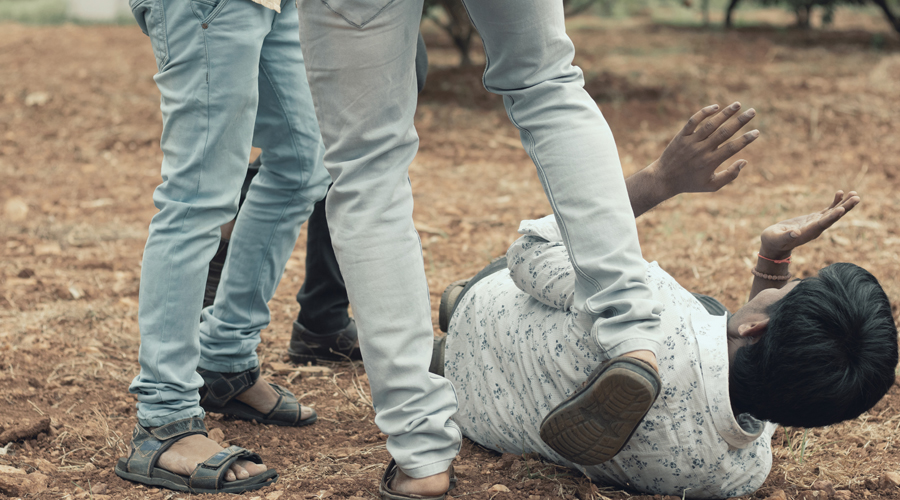Thirteen people have been arrested since Monday evening on the charge of fatally injuring a student leader in Upper Assam’s Jorhat town, amid calls from various quarters for a law to deal with mob violence and lynching.
A district leader of the influential All Assam Students’ Union (AASU), Animesh Bhuyan, and two of his acquaintances were attacked by a group of people on Monday for allegedly knocking down a scooterist. Bhuyan died soon after while the two others are undergoing treatment in Jorhat.
Police said prima facie 28-year-old Bhuyan and the others had tried to help the elderly and inebriated scooterist after he fell off his two-wheeler. The scooterist allegedly created a scene and claimed that the trio’s vehicle had hit his scooter, an allegation that enraged those at the site and triggered the assault. Bhuyan was the education secretary of AASU’s Brahmaputra Anchalik Committee in Golaghat district.
On Tuesday, the police said they had arrested 13 people since Monday, including Neeraj Das, a habitual offender and son of the scooterist. He was allegedly part of the mob. They also said Bhuyan’s vehicle had not hit the scooter.
AASU leader Dipanka Nath, who was part of a delegation that submitted a memorandum to the Jorhat deputy commissioner seeking swift trial of the accused and compensation for the victim, told The Telegraph that the “unfortunate” incident had once again underlined the need for a separate law to deal with mob violence and lynching.
“Lynching cases have been rising in Assam. We have had at least four-five cases, including the lynchings of Dr Deben Dutta and Debashish Gogoi, in the past couple of years. Before that we had the Jhankar Saikia case in 2013. Animesh had tried to help the scooterist. A separate law and speedy trial and sentencing are required to check such incidents,” Nath said.
Durga Prasad Jaiswal, a Golaghat-based lawyer who was appointed as a special public prosecutor in the 2019 Deben Dutta lynching case, echoed Nath, saying it was difficult to secure conviction under existing sections of the India Penal Code.
A Jorhat court had handed the death sentence to one of the accused and life imprisonment to 24 others involved in the lynching of Dutta, a top medical officer with a tea estate.
“The Supreme Court had suggested to the Centre and the states in 2018 to bring in separate laws to deal with mob violence and lynching. The present sections are not sufficient. It is therefore important to enact separate legislation to deal with lynching in the state,” Jaiswal said.
The demand for a separate legislation to curb lynching was also raised by the North East Legal Organisation after the killing of two persons in May 2020. Lynchings have been on the rise in Assam and the state does not have “a specific penal statue to deal with mob lynching as an offence”.
A court on Tuesday afternoon sent five of the 13 accused to 30 days’ judicial custody and remanded seven others in five days’ police custody.
However, Neeraj Das was not produced on Tuesday. They have been booked under various sections of the IPC, including 302 that deals with murder.
A huge crowd outside the court protested the lynching and sought exemplary and speedy justice. Before that, AASU protested in front of the DC’s office from 10.30am to 1.30pm. The Jorhat Bar Association has decided not to take up the case of the accused.
The state government has stepped in to prevent widespread protests with chief minister Himanta Biswa Sarma announcing on Monday that the case would be tried in a fast-track court.
A statement issued by the chief minister’s office on Tuesday evening said Sarma had directed the police to file the chargesheet in a month. He has also asked special DGP G.P. Singh to “personally supervise” the probe. The government has announced a ex gratia payment of Rs 5 lakh for Bhuyan’s family.










